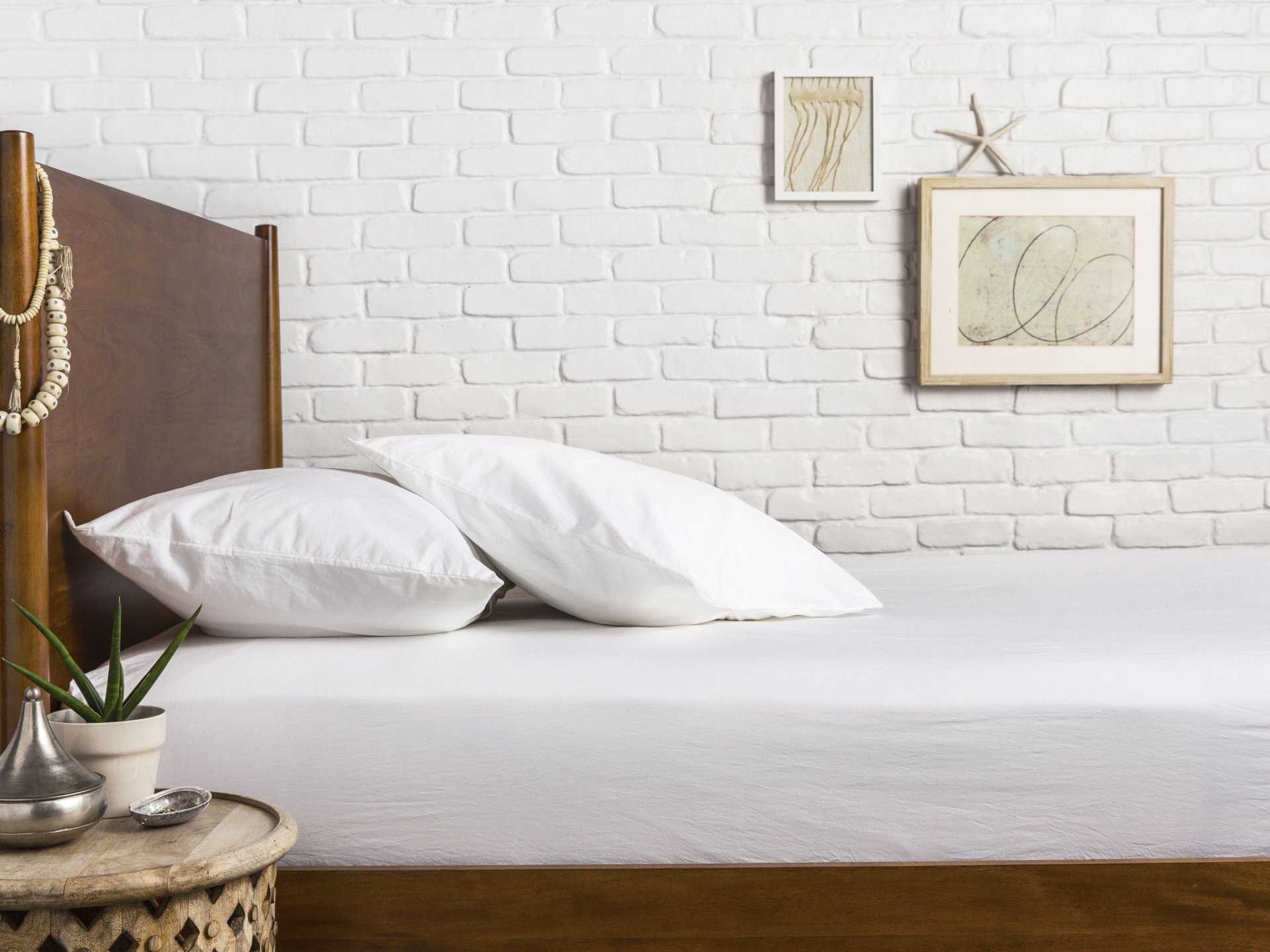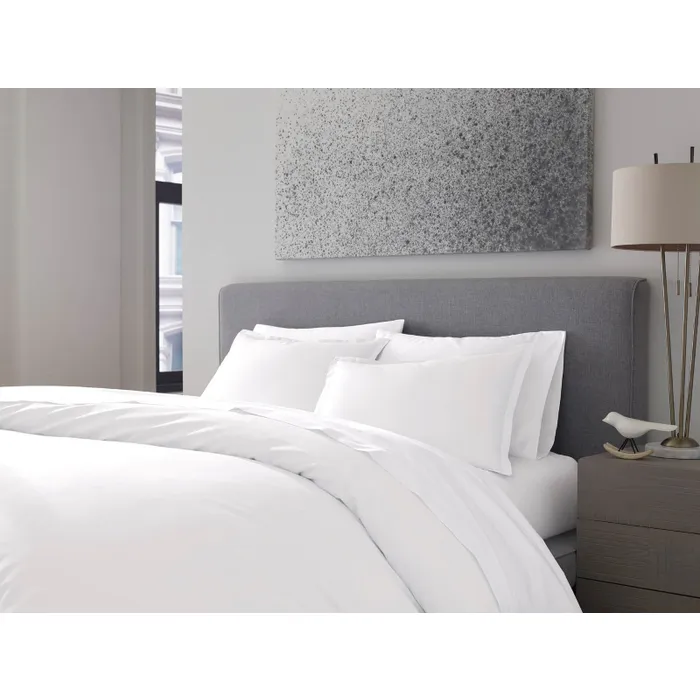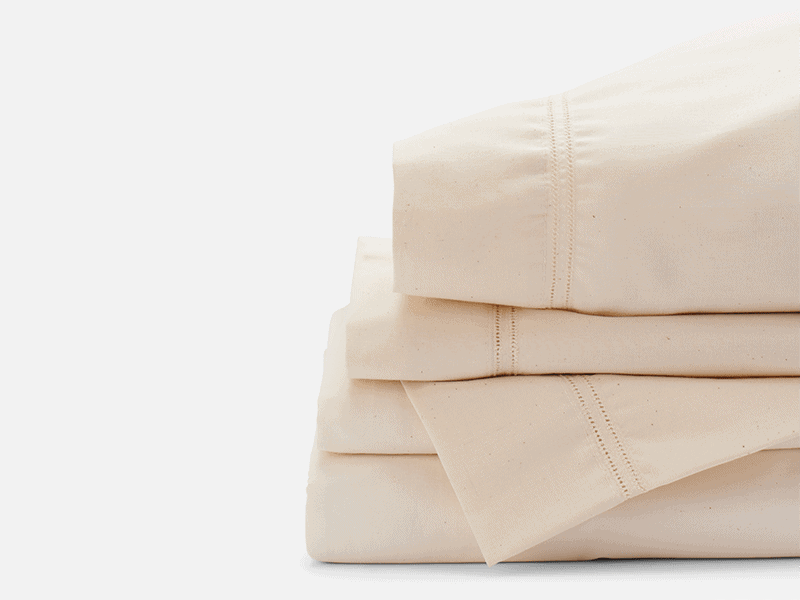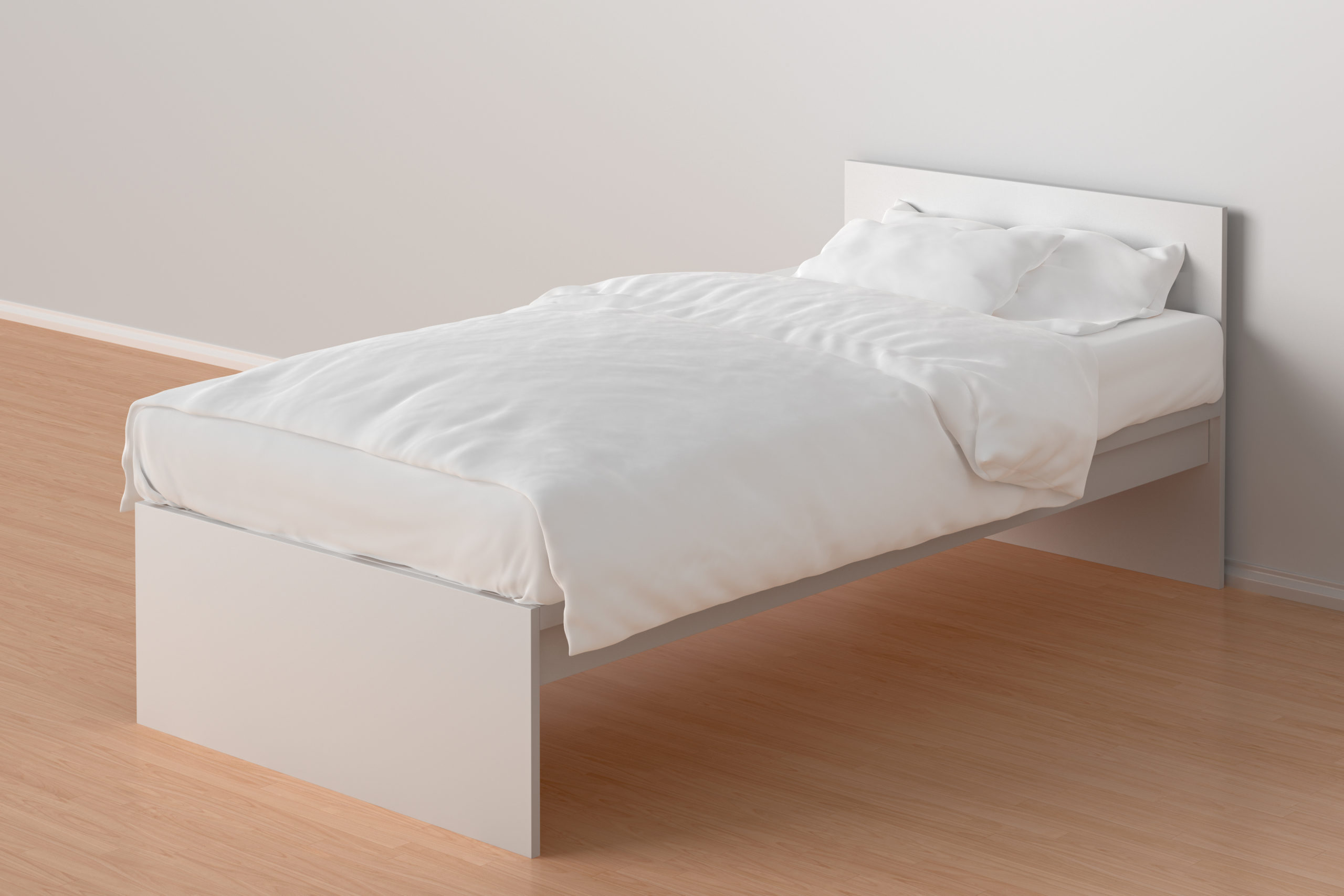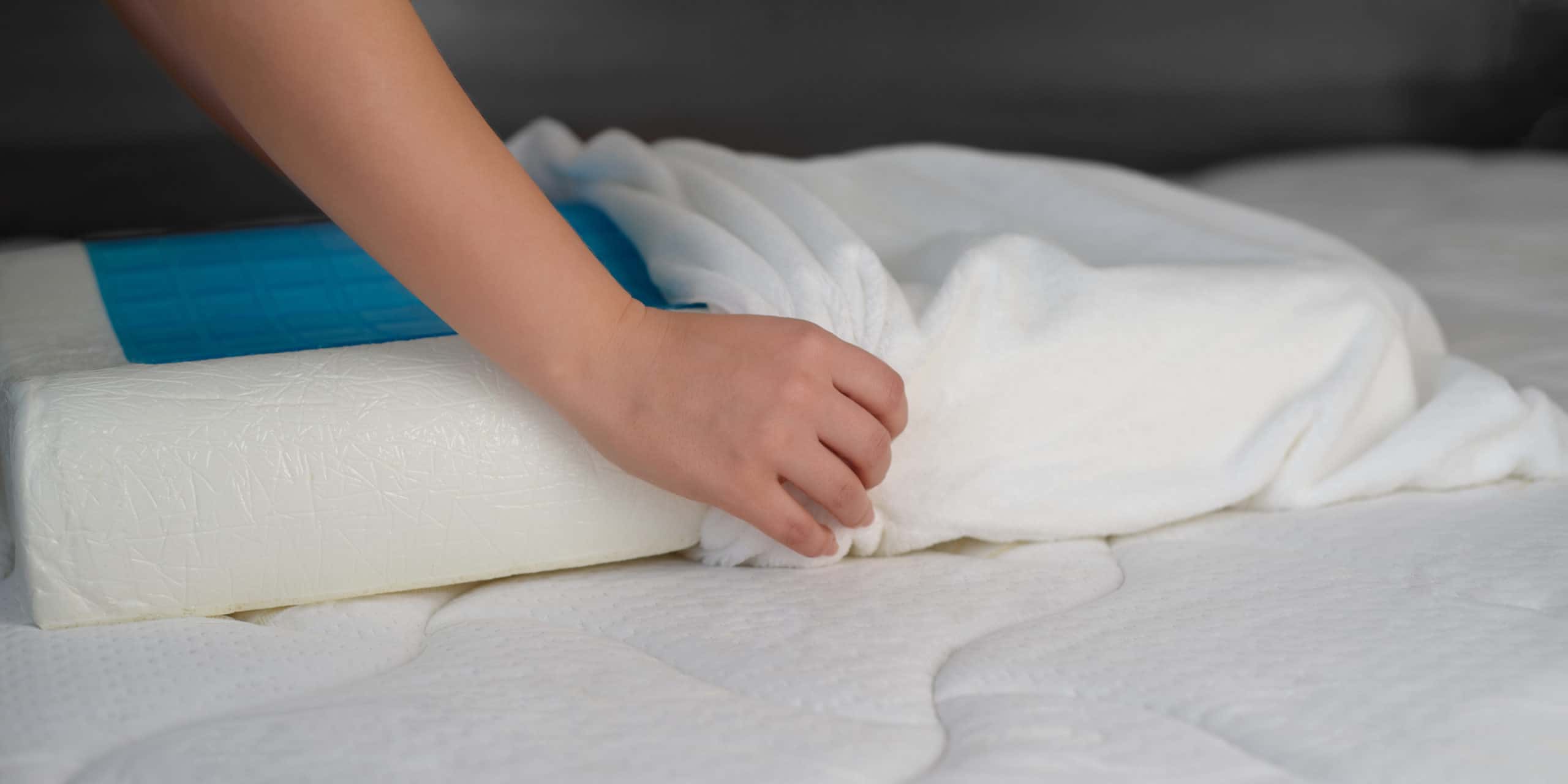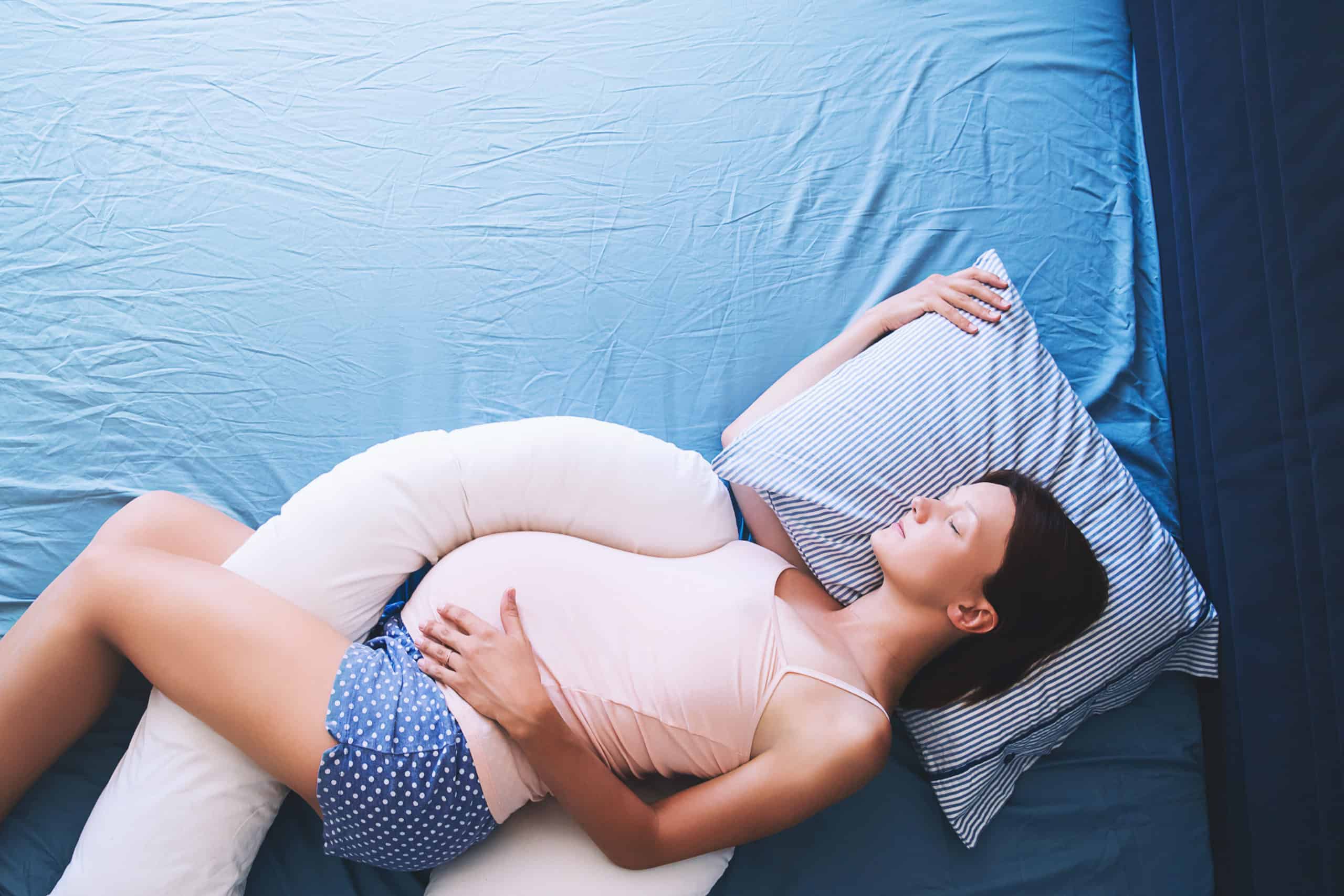Hotels are generally associated with ultra-comfortable bedding materials that offer their guests a seamless sleeping experience. While the conversation often falls on which hotel chain has the best pillows, it is undoubtedly the kind of sheets used by luxury hotels that can make or break the experience of your stay.
Hotel quality sheets tend to be crisp, soft, and classic white; so if you too are looking to upgrade your traditional bed sheets with something grander and more luxurious, here are our top picks.
FAQ
Q. What thread count do hotels use?
A. Most retailers tend to glamorize higher thread counts in sheets. You would however be surprised to learn that most hotels prefer a 250-400 thread count range for their sheets. This is primarily because associating a higher thread count with better quality sheets is, for the most part, simply a gimmick.
Sheets with a moderate thread count are more durable, affordable, and comfortable than those with a higher thread count. To achieve a thread count in the 600-800 range, most manufacturers use thinner strands that result in weaker weaves and less durable bed sheets.
As long as the bed sheet material is of high quality with stronger fabric strands, a good thread count works better and is therefore preferred by most hotels.
Q. Why are hotel sheets so crisp?
A. Hotel sheets are generally crisp because of their lower thread count, percale weave. Percale sheets with their open weave structure are not only generally stronger but also crisp.
Moreover, the crispiness of the hotel sheets can partly be owed to the greater frequency of washing they go through. Most hotels make use of commercial laundering services that have better detergents than the fabric softeners you use at home. Moreover, the hotel sheets are often washed with starch to keep their crispness intact.
As soon as the hotel sheets are washed, they are ironed before being stashed in the storage or placed on a bed. This too prevents wrinkles from developing, while making the sheet crisp and comfortable.
Q. Do hotels use percale or sateen sheets?
A. Hotels prefer percale sheets over sateen. For one, sateen sheets feature a complicated weave pattern that is not as strong as the percale one. Percale on the other hand flaunts a one-over-one-under traditional weave pattern the strength of which makes the resulting sheets highly durable and way cooler than sateen sheets.
Percale sheets with their crisp texture, are breathable and allow air to pass through. This generally means guests can sleep cool, without sweating at night and the sheets can therefore work fine while requiring minimum maintenance.
The percale sheets are also more affordable than sateen ones. Sateen has a rather silky texture to it and is more prone to pilling than percale, which is why it is less preferred by luxury hotels.
Q. What brand of sheets does the Ritz Carlton use?
A. The Ritz-Carlton’s bed linen collection is designed by Frette and Comp, known for its luxurious sheets featuring a magnificent look and feel.
These sheets make use of extra-long-staple cotton, bound together through a sateen weave. These longer fibers tend to make for a stronger weave pattern that gives the sheets its characteristic durability and a genuinely softer touch. The sateen weave on the other hand is responsible for the lustrous and silky touch particular to the Ritz-Carlton sheets.
These sheets make use of 400 thread count, which is the ideal thread count for any hotel sheets.
Q. How do hotels keep sheets wrinkle-free?
A. They do it in a variety of ways. For one, the hotel sheets are washed frequently. This relaxes the small fibers that make up the sheet and prevents the sheet from wrinkling. Since hotels have commercial cleaning machines, the sheets have enough space to spin and thoroughly clean which in turn also prevents them from wrinkling.
Hotels sometimes make use of a spray bottle filled with tap water, which is used to evenly spray water over the sheets spread on the bed. Having done so, they shake the top layer to settle the creases and tug the sheets tight to ensure a smooth surface as the sheet dries. This results in a smoother, and wrinkle-free surface. On the contrary, some hotels iron their bedsheets before placing them on the beds.
You won’t find any hotel folding up damp sheets. The sheets are either tumble dried or allowed to dry on a clothesline in the sun. This too prevents the sheets from forming wrinkles as well as mildew.
Q. What sheets do Marriott hotels use?
A. Marriott hotels have specially designed a set of sheets that it uses for its guests. Their signature sheets feature a cotton blend of around 300 thread count, which is extraordinarily soft and supple to touch. The fabric makes use of a cooling technology that allows their guests to sleep comfortably and sweat-free throughout the night.
The Marriott’s sheets feature a rather crisp feel, one that is naturally expected from a percale weave. The spotless white sheets lend the room an elegant look that is desired by most guests.
Q. How do hotels keep their sheets so white?
A. Different hotel brands have their unique ways of keeping their sheets white. In most cases, it is the washing in the laundry part that makes the difference. First off, any stains in the sheets are treated immediately and are not allowed to sit till they become permanent.
The sheets are all put in a pot containing cold water, laundry detergent, and baking soda, where they are allowed to sit for a while. The mixture along with the sheets is then boiled after which the sheets are wrung out. But that is not all!
Next, the wrung sheets are washed with a laundry detergent, then with a fabric softener, and lastly with bleach to bring back the characteristic white color. Generally, hot water is avoided to prevent damaging the sheet’s fibers and cold water is used instead.
On the contrary, some hotels have invested in state of the art technologies to shorten this lengthy washing cycle and achieve a better finish in a lesser time.
 6
ModelsConsidered
6
ModelsConsidered
 156
ConsumersConsulted
156
ConsumersConsulted
 26
HoursResearched
26
HoursResearched
